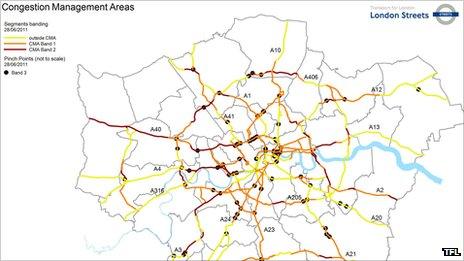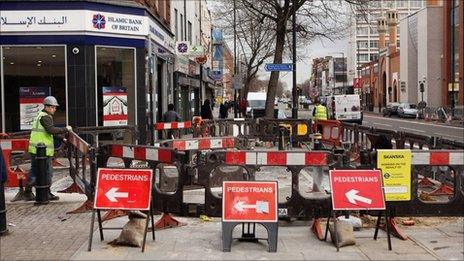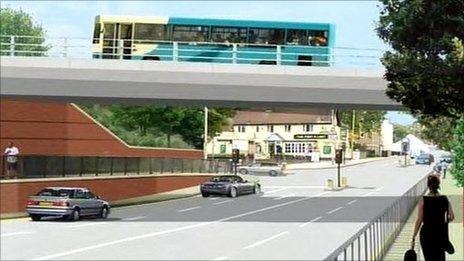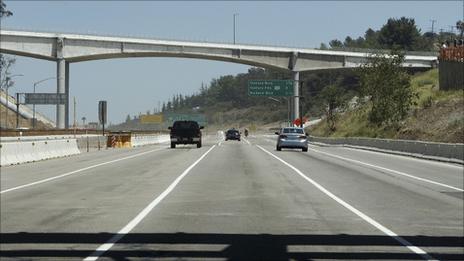Is 'lane rental' the way to solve congestion in London?
- Published
- comments
There's no doubt that the amount of road works in London needs sorting out as congestion continues to rise.
It now looks extremely likely that if you want to dig up some roads in London, then from next year you'll have to pay.
It's called "lane rental" and the Mayor of London has for a long time been trying to persuade the Department of Transport, external to introduce it.
Now it looks like he has got his way.
The big issue though is that the scheme is unproven - and it's actually already been trialled in a slightly different guise in Camden in 2002, external. Then it was deemed to have had little effect.
Above is my TV piece about the arguments on the new scheme.
Capital's clogged streets
So what's changed?
Certainly congestion is rising in central London. There are also those that think this will be Boris Johnson's answer during the mayoral election to accusations he's not dealt with the capital's clogged streets.
Likewise, some think this could be a political counterweight to Ken Livingstone's Congestion Charging Zone. But will lane rental work?
This scheme aims to incentivise new technologies like trench-plating and night working.
But not all roads are covered by it - only the busiest.

Transport for London's Congestion Management diagram
Here's a map of which roads will come under the scheme. According to Transport for London, external (TfL):
Band 1 (Orange) lane rental base charge would be set to £800 per day for all planned works. These would apply 07:00 to 10:00 and 15:30 to 19:00 Monday to Friday, and 12:00 to 18:00 during the weekend
In bands 2 (Red) and 3 pinch points (Black dots), lane rental base charge would be set to £2,500 per day. These would apply 07:00 to 22:00 Monday to Friday, and 12:00 to 18:00 during the weekend
At the moment the local boroughs and TfL don't have to be included (although TfL says it will be).
The utility companies want everyone to be subject to the same regulation.
New costs
Of course, night working will incur overtime for companies and it won't be possible in some residential areas.
The scheme itself is creating extra costs through another level of bureaucracy.
All of which means someone is going to have to pay unless companies radically alter their working practices.
The utility companies bluntly admit they'll pass on the extra costs to the bill payer.
So our journey times might get slightly shorter in central London but water bills will increase.
The real test will be if this scheme can reduce congestion. Or is a more radical approach needed? Perhaps Ken Livingstone's idea to introduce a £25 congestion charge for 4x4s?
Let me know your thoughts.
- Published22 August 2011

- Published27 July 2011

- Published18 July 2011
